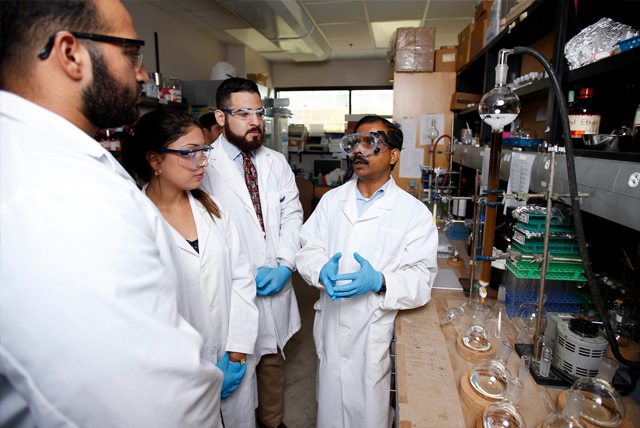Document Type
Article
Publication Date
3-2019
Abstract
Resveratrol [(E)-5-(4-hydroxystyryl) benzene-1,3-diol], also known as 3,4′,5-trihydroxystilbene also known as resveratrol is classified as a phytoalexin in plants such as nuts, cocoa, berries and grapes for self-defense against injury and pathogenic attacks by bacteria and fungi. Research on this compound did not gain popularity until the 1990s when a published paper implied the relationship between resveratrol and the decrease in cardiovascular complications due to the consumption of grape fermented wine in French populations. This observation sparked research on resveratrol even though its concentration in wine is relatively low, leading to the realization that resveratrol has potential for benefits in other illnesses such as in anti-diabetic, anti-cancer, anti-aging research and benefits towards reproductive organs, among many others that will be discussed in this review. However, most of the research found on the effects of resveratrol have been conducted on animal models, most notably mice, with a limited amount on actual humans. More research is to be expected to compare if the effects on humans will be like those of the animal models.
Recommended Citation
Ramirez, R., & Bandyopadhyay, D. (2019). Pharmacological Aspects of Resveratrol. Biomedical Journal of Scientific & Technical Research, 16(2), 1–4. https://doi.org/10.26717/BJSTR.2019.16.002815
Publication Title
Biomedical Journal of Scientific & Technical Research
DOI
10.26717/BJSTR.2019.16.002815
Included in
Alternative and Complementary Medicine Commons, Chemicals and Drugs Commons, Chemistry Commons



Comments
Copyright Debasish Bandyopadhyay